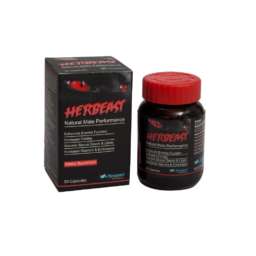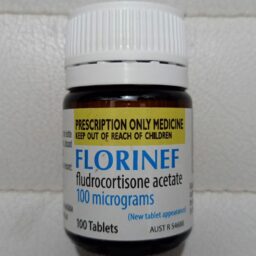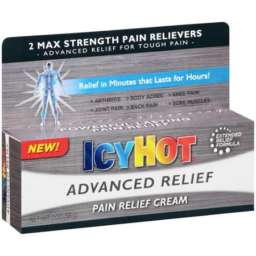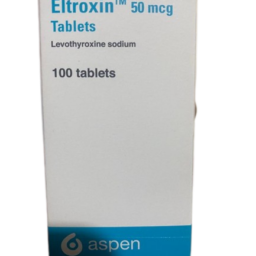
₨ 18.00

MBBS
Zefrin suspension 100 mg 90 mL
- Does this requires a prescription ? Yes
- Generic Name: Ibuprofen, Oral
- Manufactured by : Fozan Pharmaceutical Industries Pvt Ltd
- Drug Strength : 100 mg
- Drug Form : Suspension
- Pack Size : 90 ml
- Product SKU : pg_24981_34730
Zefrin suspension contains Ibuprofen, Oral | belongs to Propionic acid
Alternate brands of Zefrin suspension 100 mg 90 mL
| Brand Name | Price | Savings |
|---|---|---|
| Zufen suspension 100 mg 450 mL | ₨ 45.00 | You will pay -27 more |
| Zufen suspension 100 mg 90 mL | ₨ 22.00 | You will pay -4 more |
| Zufen suspension 100 mg 60 mL | ₨ 15.00 | You can save 3 |
| Zefen suspension 200 mg 450 mL | ₨ 50.99 | You will pay -32.99 more |
| Zefen suspension 200 mg 90 mL | ₨ 36.00 | You will pay -18 more |
How it works
Zefrin suspension 100 mg 90 mL works by inhibiting the actions of certain chemical substances in the body that cause pain and swelling.
Side effects
Major & minor side effects for Zefrin suspension 100 mg 90 mL
- Acid or sour stomach severe
- Heartburn severe
- Nausea and Vomiting severe
- Abdominal discomfort severe
- Constipation severe
- Decreased urine output severe
- Yellow colored eyes or skin severe
- Skin rash severe
- Ringing or buzzing in the ears
- Nervousness
- Loss of appetite rare
- Running Nose
- Headache
- Dizziness rare
- Diarrhea
- Depression rare
- Confusion rare
- Impaired vision rare
- Drowsiness
- Difficulty in breathing
- Jaundice
Uses of Zefrin suspension 100 mg 90 mL
What is it prescribed for?
-
Menstrual Cramps (Dysmenorrhea)
This medicine is used to relieve excessive pain and cramps during menstruation, characterized by the symptoms such as a pressure-like feeling in the stomach; vomiting; loose stools; pain in the stomach, hips, lower back, inner thighs, etc.
-
Osteoarthritis
This medicine is used to treat symptoms like tender and painful joints associated with Osteoarthritis.
-
Rheumatoid Arthritis
This medicine is used to treat symptoms like swelling, pain, and stiffness of joints associated with Rheumatoid Arthritis.
-
Fever and Pain
This medicine is used to treat a mild-to-moderate fever and painful conditions such as muscle aches, headache, dental pain, back pain, etc.
Concerns
Frequently asked questions
-
Onset of action
The effect of this medicine can be observed in 30 to 60 minutes.
-
Duration of Effect
The effect of this medicine lasts for an average duration of 4 to 6 hours.
-
Safe with Alchohol?
This medicine should not be consumed with alcohol. Symptoms of stomach bleeding (such as the presence of dried and coffee colored blood in cough or stools) should be reported to the doctor immediately.
-
Is it habit forming?
No habit forming tendencies were reported.
-
Usage in pregnancy?
This medicine is not recommended for use in pregnant women unless absolutely necessary. All the risks and benefits should be discussed with the doctor before using this medicine.
-
Usage while breast-feeding?
This medicine is not recommended for use in breastfeeding women unless absolutely necessary. All the risks and benefits should be discussed with the doctor before using this medicine. Your doctor may prescribe a safer alternative based on your clinical condition.
When not to use?
-
Allergy
This medicine is not recommended for use in patients with known allergy to Zefrin suspension 100 mg 90 mL or any other non-steroidal anti-inflammatory (NSAID) drugs.
-
Asthma
This medicine is not recommended for use in patients with known conditions such as asthma, rhinitis, urticaria, etc. due to the increased risk of worsening of the patient's condition.
-
Coronary Artery Bypass Surgery (CABG)
This medicine is not recommended for use in patients who have undergone recent heart surgery, due to the increased risk of worsening of the patient's condition.
-
Bleeding disorder
This medicine is not recommended for use in patients with the history of peptic ulcer disease or any bleeding disorders such as hemolytic anemia, gastrointestinal bleeding, cerebrovascular hemorrhage, hemophilia, hemorrhagic diathesis, hemorrhoids, etc. since it may worsen the patient's condition.
-
Severe Liver/Kidney Impairment
This medicine is not recommended for use in patients suffering from severe impairment of liver or kidney function due to the increased risk of worsening of the patient's condition.
Warnings
-
Pregnancy
This medicine is not recommended for use in pregnant women unless absolutely necessary. All the risks and benefits should be discussed with the doctor before using this medicine.
-
Breast-feeding
This medicine is not recommended for use in breastfeeding women unless absolutely necessary. All the risks and benefits should be discussed with the doctor before using this medicine. Your doctor may prescribe a safer alternative based on your clinical condition.
-
Gastro-intestinal bleeding
This medicine may cause severe gastrointestinal bleeding and perforation after prolonged usage. These adverse events may occur with or without warning symptoms. This risk is especially higher in the elderly population and in patients with a history of gastrointestinal diseases. Appropriate dose adjustments or replacement with a suitable alternative may be required based on the clinical condition.
-
Impaired kidney function
This medicine is known to cause kidney injury. Close monitoring of kidney function is necessary. The dose should be adjusted based on the CrCl (Creatinine Clearance). This medicine is not recommended in patients with severe kidney disease.
-
Impaired liver function
This medicine is known to cause liver injury. The baseline of liver enzymes should be obtained before starting the treatment. Inform the doctor if any signs of the increase in the liver enzymes appear.
-
Hypertension
This medicine should be used with caution in patients with a known history of hypertension due to the increased risk of worsening of the patient's condition. Close monitoring of blood pressure is recommended for such patients. Appropriate dose adjustments or replacement with a suitable alternative may be required based on the clinical condition of the patient.
-
Elderly population
This medicine should be used with caution in the elderly population above 65 years of age, due to the increased risk of severe adverse effects. These patients should be started at lower doses to check for tolerance. Close monitoring of renal and liver function may be necessary for such patients based on the clinical condition.
-
Use in children
This medicine is not recommended for use in children below 6 months of age.
-
Hyperkalemia
This medicine may increase potassium levels in the blood (hyperkalemia). Report any unusual symptoms to the doctor immediately. Close monitoring of potassium levels may be necessary for some patients. Appropriate dose adjustments or replacement with a suitable alternative may be required in some cases based on the clinical condition.
-
Heart disease
This medicine should be used with caution in patients with heart diseases due to the increased risk of adverse effects on the heart, especially after prolonged use. Appropriate dose adjustments or replacement with a suitable alternative may be required based on the clinical condition.
-
Skin rash
This medicine may cause fatal skin allergies without any warnings in some patients. Signs and symptoms such as rashes, hives, fever, or other allergic symptoms should be reported to the doctor without any delay. Appropriate corrective measures, dose adjustments, or replacement with a suitable alternative may be required based on the clinical condition.
Dosage
-
Missed Dose
The missed dose can be taken as soon as you remember. However, the missed dose should be skipped if it is almost time for the next dose.
-
Overdose
Seek emergency medical treatment or contact the doctor in case of overdose.
Interactions
Interaction with Medicines- Methotrexate severe
- Leflunomide severe
- Corticosteroids moderate
- Aspirin severe
- Adefovir severe
- Antihypertensives moderate
- Ciprofloxacin moderate
- Anticoagulants moderate
- Ketorolac severe
- Lithium severe
-
severe
This medicine is not recommended for use in patients with a known history of NSAID-induced asthma due to the increased risk of worsening of the patient's condition. Replacement with a suitable alternative should be done under your doctor's supervision.
-
severe
This medicine may cause fluid retention and edema in some patients. Close monitoring of blood pressure, electrolyte levels, and heart function may be required based on the clinical condition. Appropriate dose adjustments or replacement with a suitable alternative may be necessary in some cases based on the clinical condition.
-
severe
This medicine may cause fatal skin allergies without any warnings in some patients. Signs and symptoms such as rashes, hives, fever, or other allergic symptoms should be reported to the doctor without any delay. Appropriate corrective measures, dose adjustments, or replacement with a suitable alternative may be required based on the clinical condition.
-
moderate
This medicine should be used with caution in patients with a known history of anemia due to the increased risk of worsening of the patient's condition. Appropriate dose adjustments or replacement with a suitable alternative may be required based on the clinical condition of the patient.
-
severe
This medicine may cause a heart attack, stroke, or other associated symptoms after prolonged use. This risk is especially higher in patients with a history of heart diseases. Close monitoring of heart function is recommended for such patients. Report any symptoms such as chest pain, shallow breathing, speech slurring, weakness, etc. to the doctor immediately. Appropriate dose adjustments or replacement with a suitable alternative may be required based on the clinical condition.
-
severe
This medicine may cause damage to the stomach, intestines, liver, etc., especially on prolonged use. Report any symptoms such as chronic indigestion, blood in stool or vomit, etc. to the doctor immediately. Appropriate dose adjustments or replacement with a suitable alternative may be required based on the clinical condition.
General Instructions
Take this medicine as advised by your doctor. Do not take in larger amounts than prescribed. Do not stop taking this medicine without consulting your doctor. Drink adequate amount of water to minimize the stomach irritation. Monitoring of kidney function is necessary.
Other details
- To be taken after food
- To be taken as instructed by doctor
- Does not cause sleepiness
References
- practo.com - Ibuprofen [Internet]. Available from: https://www.practo.com/medicine-info/ibuprofen-395-api [cited 30 August 2019]. 8 Jul 2019
- medicines.org.uk - Anadin Joint Pain 200mg Tablets [Internet]. Available from: https://www.medicines.org.uk/emc/medicine/20509 [cited 30 August 2019]. 15 Mar 2018
- medlineplus.gov - Ibuprofen [Internet]. Available from: https://medlineplus.gov/druginfo/meds/a682159.html [cited 30 August 2019]. 22 July 2019
what are the adverse effects of Zefrin suspension 100 mg 90 mL?
Gl upset or bleeding, rash, rarely thrombocytopenia, rarely aseptic meningitis, neutropenia, periventicular leukomalacia, bronchopulmonary dysplasia, necrotising enterocolitis, intestinal perforation, oliguria, fluid retention, haematuria. Raised creatinine and hyponatraemia.
What happens if I miss a dose of Zefrin suspension 100 mg 90 mL?
Adults: 1200-1800 mg daily in divided doses. Max 2400 mg daily.
Dysmenorrhoea: 400 mg every 4 hr if needed.
Inflammatory Disease: 400-800 mg every 6-8 hr. Max: 3.2 gm/day.
Pain/fever: 200-400 mg every 4-6 hr. Max: 1.2 gm/day.
Children: Not recommended for children under 3 mth or body-weight under 5 kg.
Mild to moderate pain, pain and inflammation of soft-tissue injuries, pyrexia with discomfort: 3-6 mth, body-weight gt; 5 kg: 50 mg 3 times daily, max 30 mg/kg daily in 3-4 divided doses; 6 mth-1 yr, 50 mg 3-4 times daily, max 30 mg/kg daily in 3-4 divided doses; 1-4 yr, 100 mg 3 times daily, max 30 mg/kg daily in 3-4 divided doses; 4-7 yr, 150 mg 3 times daily, max 30 mg/kg daily in 3-4 divided doses; 7-10 yr, 200 mg 3 times daily, max 30 mg/kg (max 2.4 gm) daily in 3-4 divided doses; 10-12 yr, 300 mg 3 times daily, max 30 mg/kg (max 2.4 gm) daily in 3-4 divided doses; 12-18 yr, initially 300-400 mg 3-4 times daily, if necessary to max 600 mg 4 times daily, maintenance dose of 200-400 mg 3 times daily may be adequate.
Pain and inflammation in rheumatic disease including juvenile idiopathic arthritis: 3 mth-18 yr, 30-40 mg/kg (max 2.4 gm) daily in 3-4 divided doses; in systemic juvenile idiopathic arthritis up to 60 mg/kg (max 2.4 gm) daily (unlicensed) in 4-6 divided doses.
Post-immunisation pyrexia in infants: 2-3 mth, 50 mg as a single dose repeated once after 6 hr if necessary.
One of the following licensed pharmacy from the nearest location will deliver Zefrin suspension 100 mg 90 mL. The details of the licensed pharmacy shall be shared once you request the drugs and the respective pharmacy accepts your request based on valid prescription and availability.
Questions and Answers
There are no questions yet. Be the first to ask a question about this product.
Related products
Products listed on medicalstore.com.pk are 100% genuine and sourced from licensed pharmacies.
We work hard to bring you unimaginable discounts without compromising on quality.
We uses SSL (standard security technology) to ensure data privacy of all our customers.





Reviews
There are no reviews yet.